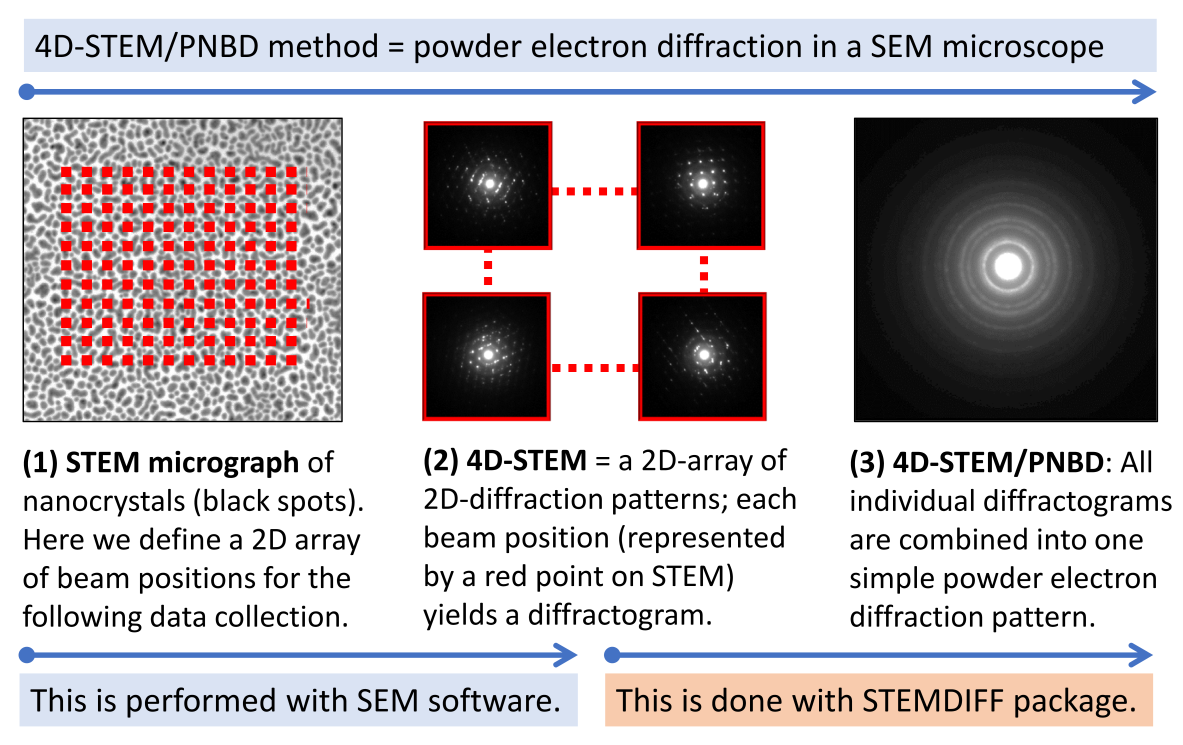- The STEMDIFF package converts...
... a 4D-STEM dataset from a SEM microscope (huge and complex)
... to a 2D-powder diffraction pattern (simple and easy to work with). - The STEMDIFF package is a key part of our 4D-STEM/PNBD method,
which was described (together with the package) in open-access publications:- Nanomaterials 11 (2021) 962. https://doi.org/10.3390/nano11040962
- Materials 14 (2021) 7550. https://doi.org/10.3390/ma14247550
- If you use STEMDIFF package, please cite the 2nd publication (or both :-).
- See how it works:
- Look at worked example in Jupyter.
- Try it yourself:
- Download and unzip the complete example with data.
- Look at
00readme.txtand run the example in Jupyter.
- PyPI repository.
- GitHub repository.
- GitHub Pages with documentation.
- Version 1.0 = Matlab: just simple summation of 4D-dataset
- Version 2.0 = like v1.0 + post-processing in Jupyter
- Version 3.0 = Python scripts: summation + S-filtering
- Version 4.0 = Python package: summation + S-filtering + deconvolution
- summation = summation of all 2D-diffractograms
- S-filtering = sum only diffractograms with strong diffractions = high S
- deconvolution = reduce the primary beam spread effect ⇒ better resolution
- Version 4.2 = like v4.0 + a few important improvements, such as:
- sum just the central region with the strongest diffractions ⇒ higher speed
- 3 centering types: (0) geometry, (1) weight of 1st, (2) individual weights
- better definition of summation and centering parameters
- better documentation strings + demo data + improved master script
- Version 5.0 = complete rewrite of v4.2
- all key features of v4.2 (summation, filtering, deconvolution)
- plus several generalizations and improvements, namely:
- possibility to define and use more detectors/datafile formats
- better filtering (including estimated number of diffractions)
- more types of deconvolution algorithms
- no conversion of 2D-diffractograms to 1D-profiles
- this was improved and moved to a sister package EDIFF
